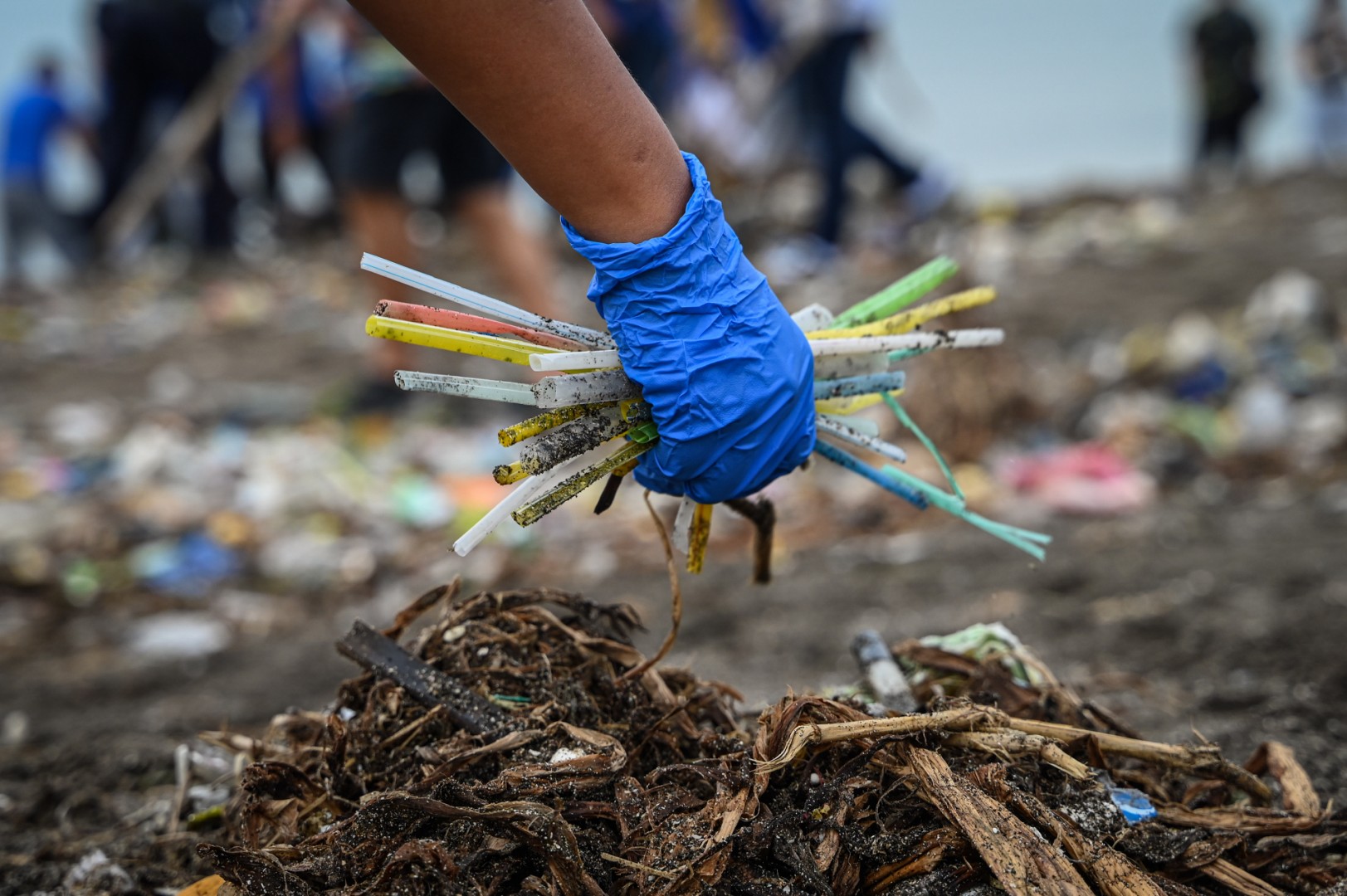
Trump misrepresents plastic impact on sharks in reversing course on straws
- This article is more than one year old.
- Published on February 13, 2025 at 22:04
- Updated on February 13, 2025 at 22:21
- 3 min read
- By Manon JACOB, AFP USA
In his latest push to undo environmental goals established by the Biden-Harris Administration since returning to the White House, Trump signed an executive order (archived here) pushing for a return to plastic drinking straws, saying their impact on marine life was limited.
"I don't think that plastic is going to affect a shark as they're eating, as they're munching their way through the ocean," the president -- who has repeatedly singled out the species over the years (archived here and here) -- told reporters on February 10, 2025 as he signed the order in the Oval Office. "We're going back to plastic straws," adding that paper straws "don't work."

But scientists told AFP that single-use plastics, including straws, negatively affect sharks and other large ocean animals.
"Plastic consumption by marine animals, including sharks, sea turtles, and marine mammals is well-documented," said Greg Merrill, who researches the impacts of plastic pollution at Duke's School of the Environment (archived here).
"Trump's claims about plastic are not supported by empirical scientific evidence; there is an urgent need to reduce our plastic footprint globally to protect both wildlife and human health," he told AFP on February 12.
Single-use, long-term impact
Unlike other waste, plastic does not fully decompose (archived here). When it is not discarded properly, plastic often lands in marine ecosystems, where it slowly breaks into tiny pieces, known as microplastics (archived here).
The presence of microplastics -- which come from numerous products including straws -- in different species of sharks has been documented in multiple studies across the globe (archived here, here, here and here).
Over 170 trillion plastic particles are estimated to be afloat in the world's oceans (archived here).
Marine fauna face entanglement risks from plastic bags, balloons or latex, and fishing-related gear.
Flexible plastic is responsible for the largest proportion of marine animal deaths (archived here), but scientists also singled out plastic utensils among the greatest threats to species.
Single-use products, such as straws, by their disposable nature and mass production represent a huge source of plastic pollution in the ocean, said Sarah Nelms, senior lecturer at the University of Exeter's Marine Vertebrate Ecology and Conservation in the United Kingdom (archived here).
Such pollution "can harm a wide range of marine animals, from massive whales to the tiny zooplankton that prop up the ocean's food web" under its various forms, Nelms said on February 11.
She cited one example of an endangered whale shark in Thailand "that was killed when a plastic straw punctured its stomach" (archived here).
Ingestion concerns
David McGuire, director of Shark Stewards, a non-profit project of the Earth Island Institute in Berkeley, California (archived here and here), told AFP on February 12: "Many species of sharks, including critically endangered species like whale sharks consume and ingest ocean plastic."
While larger sharks may pass plastic through their intestinal tract without immediate damage, scientists say longer-term health concerns remain.
Animals may suffer malnutrition -- triggered by a false sense of satiety due to plastic absorption (archived here).
Exposure to pollutants and chemicals contained in plastics can also hinder reproduction, as well as cause gut, liver and brain damage (archived here).
"The harm is not just interruption of normal digestion, but also toxic organic chemicals including carcinogens leach into the animals' tissues from ingested plastic," McGuire said.
Determining if an ocean animal has died as a direct cause of plastic is "very complex" unless there are clear signs of intestinal obstruction, said François Galgani, scientist at the French Institute for Ocean Science (archived here and here).
Only a fraction of dead marine animals go through necropsies -- usually following a stranding -- and much of the ocean is unmapped and unobserved (archived here).
But Galgani said waste in oceans, including single-use plastics, is clearly altering the biodiversity of entire ecosystems as they act as vectors for pathogens, potentially causing severe ecological harms (archived here).
AFP has debunked other false environmental claims made by Donald Trump since his return in office.
This article was refiled for technical reasons.February 13, 2025 This article was refiled for technical reasons.
Copyright © AFP 2017-2026. Any commercial use of this content requires a subscription. Click here to find out more.
Is there content that you would like AFP to fact-check? Get in touch.
Contact us




